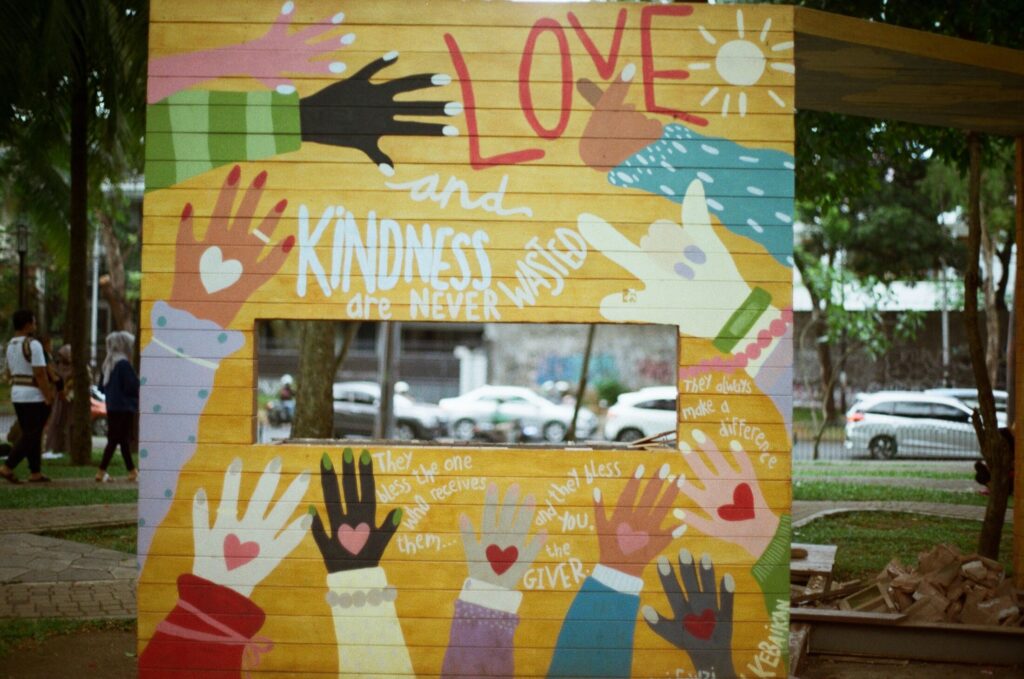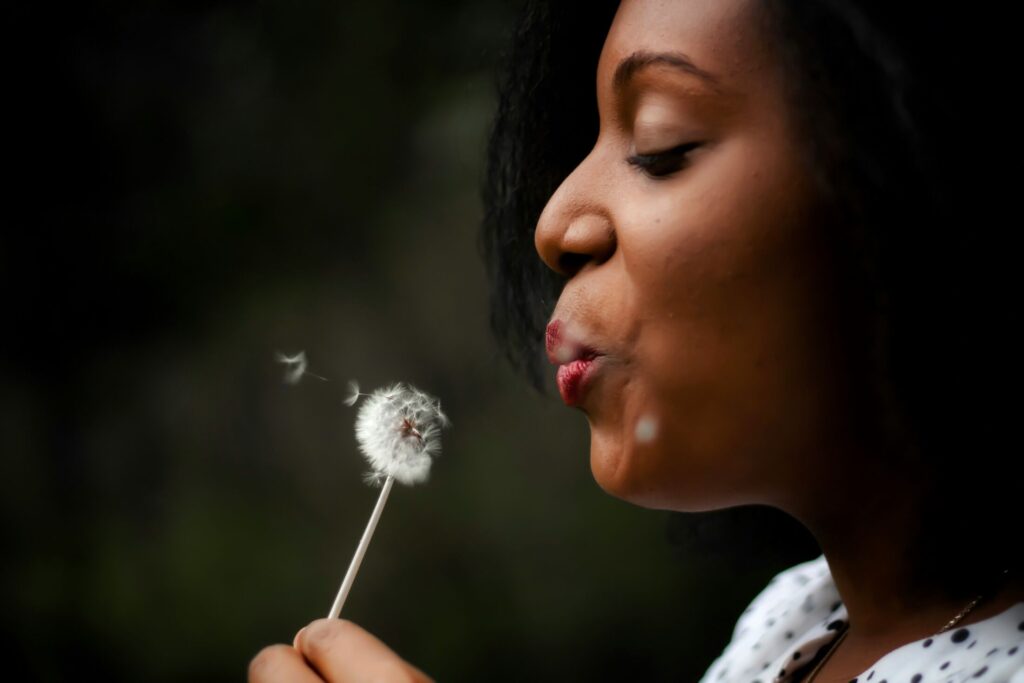
Photo by Ditto Bowo
“May you be happy…”
Have you heard this phrase before? It is one of several phrases that might be used in the loving-kindness meditation practice. Others include: may you feel safe, may you be healthy, may you be at peace, and may you live with ease. What is your reaction when you hear these phrases? Do you find them heart-warming and settling? Or are they vapid? Do you hear sincerity in these phrases? Or do you feel skepticism?Loving-kindness is a cultivation practice that involves repeating phrases of well-being, or “kindfulness” to an individual, oneself, or to a collective society. Also referred to as metta, in Buddhism, it is one of the four Brahmaviharas or divine emotions or sublime attitudes (the other three are compassion (karuna), sympathetic joy (mudita), and equanimity (upeka)). A typical sequence might have you offer these phrases first to a loved one, then to a neutral person, then to a person with whom you have a difficult relationship, then to yourself (oh, this can be difficult!), and then to a larger community (which could include all beings).
At first glance, perhaps this practice seems hokey or farfetched. How could repeating these phrases to myself or someone else do any good or make a difference? Do my words to the whole world really accomplish anything? No one hears the phrases but me!
But in fact, studies show that a regular loving-kindness practice has positive effects on self-reliance, well-being, managing chronic pain, and the quality of relationships.

Photo by Tim Mossholder
This practice changes mindset. Your mindset. How you feel matters and affects your mood and physical constitution. Immersing yourself in these words affects how you perceive yourself and others. Here is an example: Your morning practice is loving kindness. Now, you are at the grocery store. The person in front of you is struggling to sort through all of her coupons to match with the items she wants to buy. She is taking a long time and is flustered as she sees the line behind her grow. The cashier is getting antsy.
You could be frustrated, too, but you’re not. You are in a generous state of mind, fostered by your practice. You send a reassuring smile to the cashier, who smiles back at you, then takes a deep breath, settles, and releases his shoulders. He smiles at the coupon-holder and eases her stress.
Now, magnify this by the many people you interact with each day. Imagine they absorb from you a bit of the patience and compassion you demonstrate, and then they distribute it on to the people with whom they interact. What potential!

Photo by Joshua Rawson-Harris
What if our default mode was to see other people with kindness, and friendliness, rather than threat? That our high achieving cultural norm softened so we could support everyone doing well? Our culture need not be a “zero-sum gain,” that is: if you win, I lose. Or for me to win, you must lose. We can all win. We live in a society that values a “me-first”, independent, and self-sufficient style of living. Loving-kindness practice supports recognizing we live in a society of others – people, plants, animals, critters – and that we can foster a “we-first” attitude. We all thrive when we all do well.
I feel compelled to introduce loving-kindness to even the shortest Introductory to Mindfulness course. I do this because I believe, through mindfulness, we learn that struggle, stress, and suffering are a normal part of the human condition. We become aware that the challenges in our lives are shared with many. As such, it only makes sense to offer compassion to ourselves and others in this challenging world. It only makes sense to include a means of cultivating this care for self and others through a formal practice.
As you explore this practice, allow some time to adjust to the idea of offering well-being to others. It might be helpful to start with just a loved one (a child or parent or other relative, dear friend, or an adored pet). Feel the presence of this person (or critter) in your mind. Try to open your heart to feeling the love you feel for them, and them for you.
Next, try offering the phrases to someone you don’t know well, but see on a regular basis (bus driver, neighbor, barista). Know that, just like you, they want to be happy. Even though you don’t know the details of their lives, offer these internal phrases of friendliness.

Photo by Leighann Blackwood
Perhaps next you say these phrases to yourself. Sometimes this can be the hardest! We can be so demanding of ourselves. What if you give your critical voice a vacation and wish yourself well?
There is an option to send loving-kindness to someone who is challenging in your life, too. At first, explore this with someone who is a bit annoying, not the most difficult person. Then, the best you are able, see this person in your mind as someone who wants to be happy. Even if they have wronged you, this fact remains. It can take courage to see them in this different light. Be discerning, and kind to yourself, as you navigate this option.
Finally, what does it feel like to send these phrases to the whole world? To say, “May all beings be happy, may all beings feel safe, may all beings be healthy, and may all beings be at peace and live with ease”? How does your body feel when you offer these phrases of loving-kindness or friendliness to all critters?
I first encountered the practice of loving-kindness while attending an 8-week Introduction to Meditation course. At the time, I was in the throes of adjusting to a betrayal – two months prior, my partner of over thirty years had decided our marriage was over. This pronouncement came out of the blue and derailed me. I sought meditation to get me back on track. Being an overachiever, I tried to offer loving-kindness to this person, but when I did so a giant question mark floated over my thoughts. I shared this with the meditation teacher. His comment was so kind: “for what you have experienced, you need to practice loving-kindness directed towards yourself — for a year.”
Loving-kindness practice is fluid. It offers a structure for you to come home to your compassionate self. There are no set phrases. Find words that work best for you. Discover how this cultivation practice can influence the interactions you have with yourself, others, and the world around you. May you be happy!
